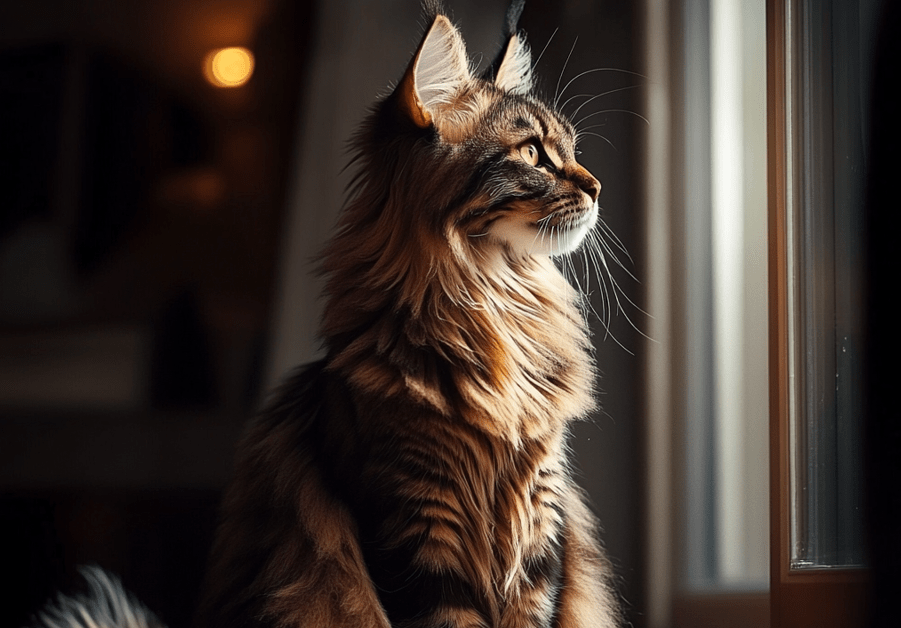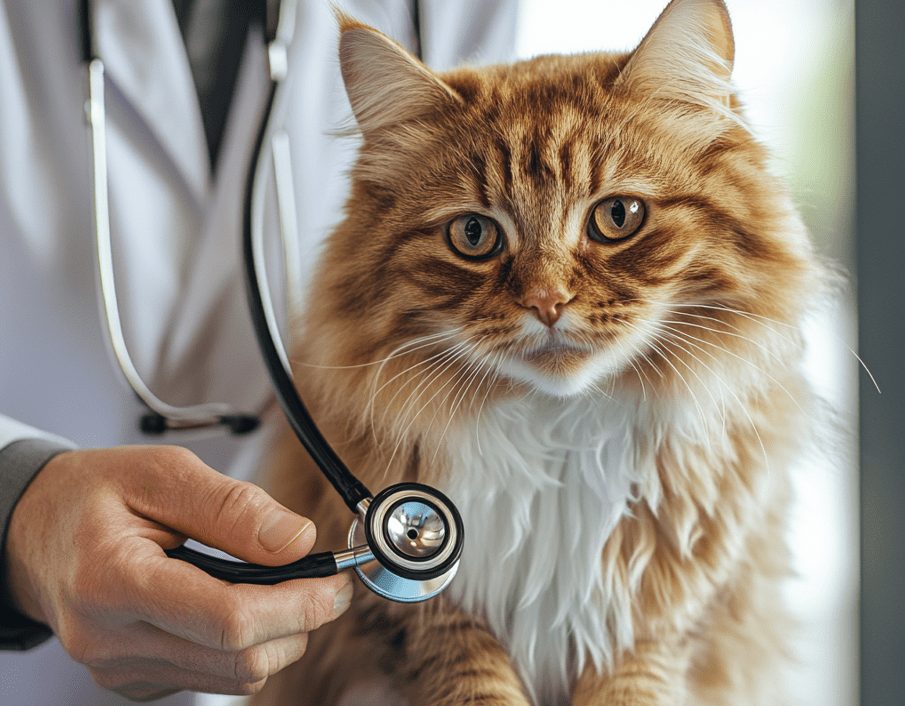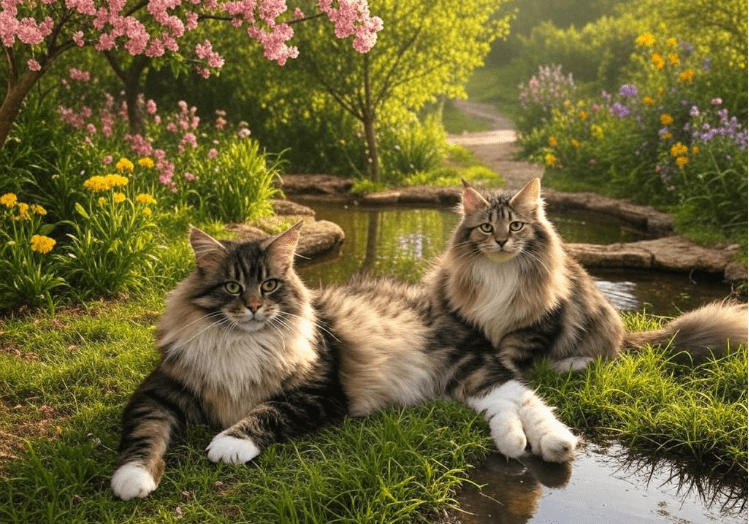
Kidney issues in Maine Coons are a significant health concern for owners of these majestic, long-haired cats. Known for their gentle temperament and large size, Maine Coons are prone to certain genetic and age-related conditions, including kidney problems like chronic kidney disease (CKD) and polycystic kidney disease (PKD). Early detection is critical to managing these conditions and ensuring a good quality of life for your feline friend. This comprehensive guide explores the early signs of kidney issues in Maine Coons, risk factors, diagnostic steps, and proactive care strategies to help you keep your cat healthy.
Understanding Kidney Issues in Maine Coons
The kidneys play a vital role in filtering waste, regulating hydration, and maintaining electrolyte balance in cats. When kidney function declines, it can lead to serious health complications. Maine Coons are particularly susceptible to kidney issues due to genetic predispositions and their long lifespan, which increases the likelihood of age-related diseases. Recognizing the early signs of kidney issues in Maine Coons can make a significant difference in treatment outcomes, as early intervention can slow disease progression and improve quality of life.
Common Kidney Conditions in Maine Coons
Maine Coons are at risk for several kidney-related conditions, including:
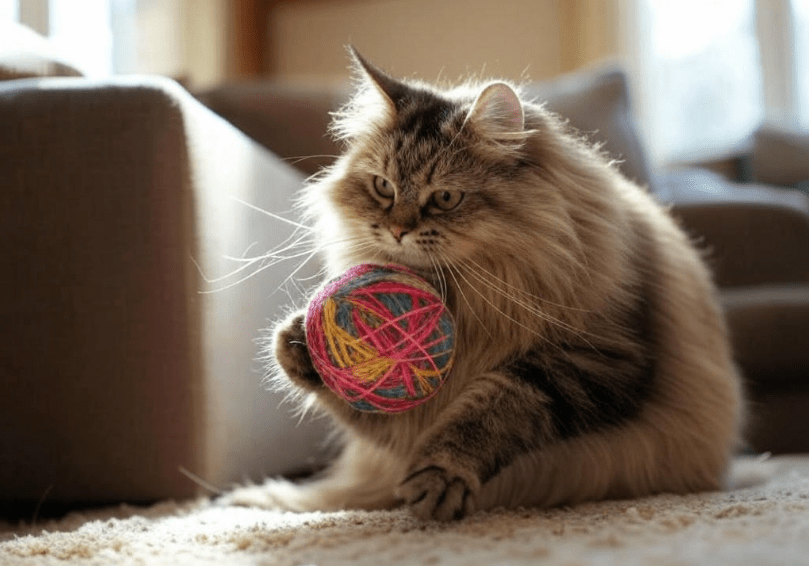
Polycystic Kidney Disease (PKD): A genetic condition where fluid-filled cysts form in the kidneys, impairing function over time. PKD is hereditary and more common in certain breeds, including Maine Coons.
Chronic Kidney Disease (CKD): A progressive loss of kidney function, often seen in older Maine Coons. CKD is one of the leading causes of death in senior cats.
Acute Kidney Injury (AKI): Sudden kidney damage caused by toxins, dehydration, or infections. While reversible if caught early, AKI can lead to long-term issues.
Urinary Tract Infections (UTIs): Infections can affect the kidneys if untreated, causing inflammation and potential damage.
Kidney Stones or Blockages: Rare but possible, these can obstruct urine flow, leading to kidney strain.
Understanding these conditions helps you stay vigilant for symptoms and seek timely veterinary care.
Why Maine Coons Are Prone to Kidney Issues
Several factors contribute to the prevalence of kidney issues in Maine Coons:
Genetic Predisposition: PKD, in particular, is linked to a genetic mutation that can be passed down through breeding lines. Responsible breeders screen for PKD to reduce its incidence.
Large Size and Longevity: Maine Coons live 12-15 years on average, increasing their risk of age-related conditions like CKD.
Diet and Hydration: Inadequate water intake or poor-quality diets can strain the kidneys over time, especially in cats fed only dry food.
Environmental Stressors: Stress from household changes or other pets can exacerbate underlying health issues, indirectly affecting kidney function.
By understanding these risk factors, you can take proactive steps to monitor and protect your Maine Coon’s kidney health.
Early Signs of Kidney Issues in Maine Coons
Detecting kidney issues in Maine Coons early requires close observation, as symptoms can be subtle in the initial stages. Below are the key signs to watch for, grouped by category for clarity.
1. Changes in Urination
The kidneys regulate urine production, so changes in urination patterns are often the first clue:
Increased Urination (Polyuria): Your Maine Coon may urinate more frequently or produce larger volumes of dilute urine, indicating the kidneys’ reduced ability to concentrate urine.
Decreased Urination: In cases of blockages or acute injury, urination may slow or stop, requiring immediate veterinary attention.
Straining or Pain: Difficulty urinating, vocalizing in the litter box, or blood in the urine can signal a UTI or kidney stones.
Inappropriate Urination: Urinating outside the litter box may indicate discomfort or an inability to control urination.
2. Increased Thirst (Polydipsia)
Cats with kidney issues often drink more water to compensate for fluid loss through dilute urine. Watch for:
1.Frequent trips to the water bowl or drinking from unusual sources (e.g., faucets, sinks).
2.A noticeable increase in water consumption compared to their usual habits.
3. Appetite and Weight Changes
Kidney issues can affect appetite and metabolism, leading to:
Reduced Appetite: Your Maine Coon may eat less or refuse food due to nausea or toxin buildup in the bloodstream.
Weight Loss: Unexplained weight loss, even with a normal diet, is a red flag, especially in older cats.
Picky Eating: Cats may become finicky or avoid certain foods as kidney function declines.
4. Lethargy and Behavioral Changes
Kidney problems can cause fatigue and mood shifts:
Lethargy: Your normally playful Maine Coon may seem tired, sleep more, or avoid activity.
Irritability or Withdrawal: Discomfort from kidney issues can make cats less social or more aggressive.
Reduced Grooming: A dull, unkempt coat may indicate your cat isn’t feeling well enough to groom.
5. Gastrointestinal Symptoms
Toxin buildup from impaired kidney function can cause digestive issues:
Vomiting: Occasional vomiting, especially after meals, may signal kidney problems.
Diarrhea or Constipation: Changes in bowel habits can accompany kidney issues.
Bad Breath: A metallic or ammonia-like odor in your cat’s breath may indicate uremia (toxin buildup).
6. Physical Signs
Physical changes can also point to kidney issues:
Dehydration: Look for sunken eyes, dry gums, or skin that doesn’t snap back when gently pinched.
Poor Coat Quality: A rough, dry, or matted coat may reflect poor health.
Swelling or Pain: In rare cases, kidney enlargement (e.g., from PKD cysts) may cause abdominal discomfort or swelling.
7. Subtle Behavioral Cues
Maine Coons are expressive, and subtle changes may indicate discomfort:
1.Hiding more than usual or seeking warmer spots to lie down.
2.Reluctance to jump onto high surfaces, possibly due to weakness or joint pain linked to kidney issues.
Risk Factors to Monitor
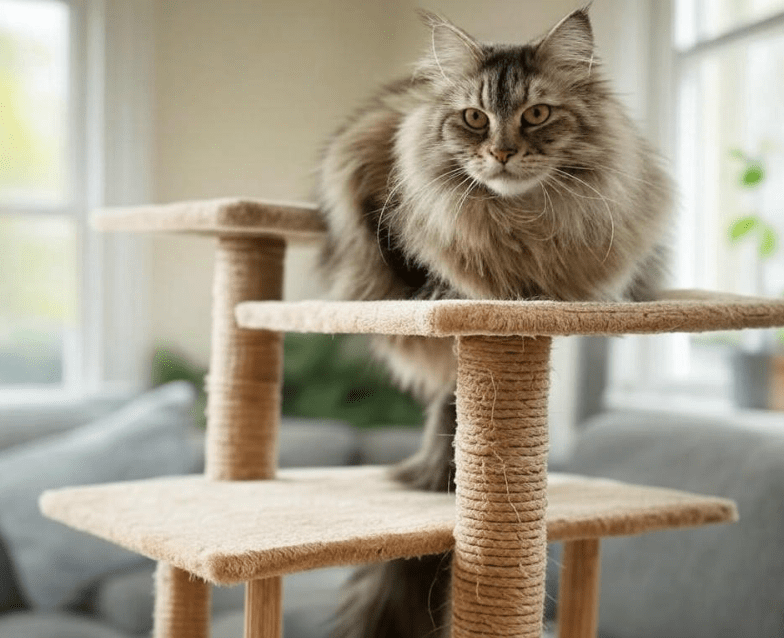
Certain factors increase the likelihood of kidney issues in Maine Coons, making vigilance especially important:
Age: Cats over 7 years are at higher risk for CKD.
Genetics: Maine Coons with a family history of PKD require regular screening.
Diet: Diets low in moisture or high in phosphorus can stress the kidneys.
Previous Health Issues: A history of UTIs, diabetes, or hypertension can predispose cats to kidney problems.
Obesity: Excess weight strains the kidneys and other organs.
If your Maine Coon falls into these categories, proactive monitoring is essential.
How to Confirm Kidney Issues
If you notice any of the above signs, consult a veterinarian promptly. They will use a combination of tests to diagnose kidney issues in Maine Coons:
Blood Tests:
BUN (Blood Urea Nitrogen) and Creatinine: Elevated levels indicate reduced kidney function.
SDMA (Symmetric Dimethylarginine): A newer test that detects kidney issues earlier than BUN or creatinine.
Electrolyte Levels: Imbalances in potassium, phosphorus, or calcium can signal kidney problems.
Urinalysis:
1.Checks for dilute urine, protein, blood, or bacteria, which may indicate kidney disease or infection.
2.Specific gravity measures the kidneys’ ability to concentrate urine.
Imaging:
Ultrasound: Detects cysts (as in PKD), kidney size, or structural abnormalities.
X-rays: Identify kidney stones or blockages.
Blood Pressure Measurement:
Hypertension is common in cats with kidney issues and can worsen damage if untreated.
Genetic Testing:
For PKD, a DNA test can confirm the presence of the gene mutation, especially in young cats or those from unscreened breeding lines.
Early diagnosis allows for timely intervention, which can significantly extend your Maine Coon’s life.
Proactive Steps to Support Kidney Health
While some kidney issues, like PKD, are genetic, you can take steps to support your Maine Coon’s kidney health and catch problems early.
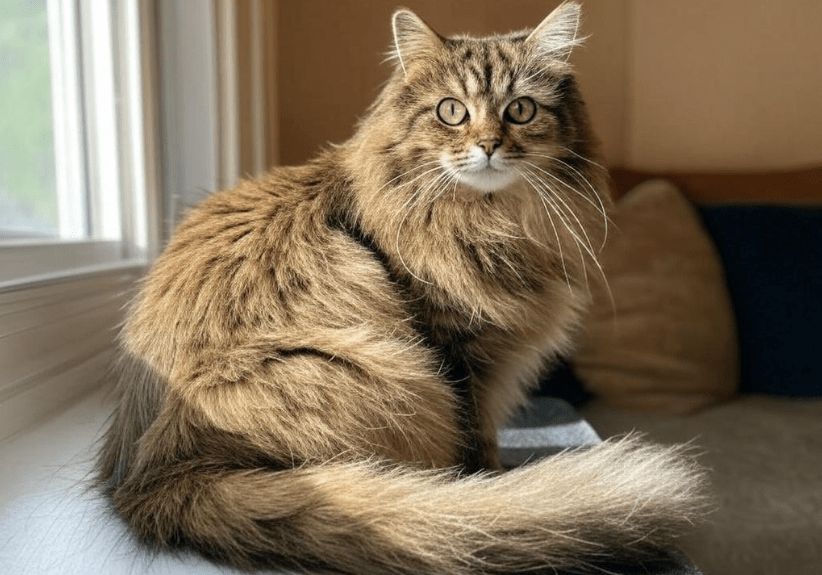
1. Schedule Regular Veterinary Checkups
Annual Exams: For cats under 7, yearly checkups are sufficient. For seniors (7+ years), biannual visits are recommended to monitor kidney function.
Baseline Testing: Establish baseline blood and urine values when your cat is healthy to track changes over time.
PKD Screening: If your Maine Coon’s lineage is unknown, request a PKD ultrasound or DNA test, ideally before age 3.
2. Optimize Diet and Nutrition
A kidney-friendly diet can reduce strain and support overall health:
High-Quality Wet Food: Wet food’s high moisture content (70-80%) promotes hydration, reducing kidney workload. Choose foods with named protein sources (e.g., chicken, turkey).
Low-Phosphorus Diets: For cats with early kidney issues, prescription diets like Hill’s k/d or Royal Canin Renal Support limit phosphorus to slow disease progression.
Omega-3 Supplements: Fish oil can reduce inflammation and support kidney function. Consult your vet for dosing.
Avoid Toxic Foods: Keep grapes, raisins, onions, and garlic out of reach, as they can harm kidneys.
3. Encourage Hydration
Proper hydration is critical for kidney health:
Provide Fresh Water: Place multiple water bowls around the house and refresh them daily.
Use Water Fountains: Maine Coons are attracted to running water, which encourages drinking.
Incorporate Wet Food: Even if your cat prefers dry food, mix in small amounts of wet food to boost moisture intake.
Monitor Water Intake: Track how much your cat drinks to detect changes early.
4. Maintain a Stress-Free Environment
Stress can exacerbate kidney issues by raising blood pressure or suppressing appetite:
Create Safe Spaces: Offer high perches, cozy beds, or hiding spots where your Maine Coon can relax.
Minimize Changes: Avoid sudden household changes, like rearranging furniture or introducing new pets, which can stress sensitive cats.
Use Pheromone Diffusers: Products like Feliway can reduce anxiety and promote calm.
5. Monitor Weight and Activity
Prevent Obesity: Excess weight strains the kidneys. Feed measured portions and encourage play to maintain a healthy weight.
Encourage Activity: Use interactive toys like feather wands or laser pointers to keep your Maine Coon active, supporting circulation and overall health.
6. Watch for Toxins
Kidneys are vulnerable to toxins, so take precautions:
Avoid Toxins: Keep antifreeze, lilies, NSAIDs (e.g., ibuprofen), and household cleaners out of reach, as they can cause acute kidney injury.
Check Medications: Only give vet-approved medications, as some human drugs are toxic to cats.
7. Manage Underlying Conditions
Conditions like hypertension or diabetes can worsen kidney issues:
Monitor Blood Pressure: Regular checks can catch hypertension early, which is common in cats with CKD.
Control Diabetes: If your Maine Coon is diabetic, work with your vet to manage blood sugar, as uncontrolled diabetes can damage kidneys.
What to Do If You Suspect Kidney Issues
If you notice signs of kidney issues in your Maine Coon, act quickly:
Contact Your Vet: Schedule an appointment and describe all symptoms, including their onset and frequency.
Track Symptoms: Keep a log of urination habits, water intake, appetite, and behavior to share with your vet.
Follow Treatment Plans: If diagnosed, adhere to your vet’s recommendations, which may include dietary changes, medications, or fluid therapy.
Provide Supportive Care: Ensure your cat has a comfortable, low-stress environment and easy access to food, water, and litter boxes.
Treatment Options for Kidney Issues
While some kidney conditions, like CKD, are not curable, treatments can manage symptoms and slow progression:
Dietary Management: Prescription kidney diets reduce protein and phosphorus to ease kidney strain.
Fluid Therapy: Subcutaneous fluids help hydrate and flush toxins, often administered at home for CKD cats.
Medications: Drugs like ACE inhibitors (for blood pressure) or anti-nausea meds can improve comfort.
Supplements: Potassium or B vitamins may be prescribed to correct deficiencies.
Surgery (Rare): For PKD with large cysts or kidney stones, surgery may be considered in severe cases.
Work closely with your vet to tailor a treatment plan to your Maine Coon’s needs.
Common Mistakes to Avoid
When monitoring for kidney issues in Maine Coons, avoid these pitfalls:
Ignoring Subtle Signs: Early symptoms like increased thirst are easy to overlook but critical to catch.
Delaying Vet Visits: Waiting too long can allow conditions to progress, reducing treatment options.
Feeding Inappropriate Diets: High-phosphorus or low-moisture foods can worsen kidney strain.
Overlooking Hydration: Inadequate water intake accelerates kidney damage.
Assuming Age-Related Decline: Don’t dismiss symptoms as “just old age” without veterinary evaluation.
Long-Term Strategies for Kidney Health
To support your Maine Coon’s kidneys over their lifetime:
Stay Consistent: Maintain regular vet visits, a kidney-friendly diet, and a low-stress environment.
Educate Yourself: Learn about Maine Coon health risks and stay updated on veterinary advancements.
Invest in Prevention: Early screening for PKD and routine bloodwork can catch issues before symptoms appear.
Build a Bond: Spend quality time with your Maine Coon to notice subtle behavioral changes that may indicate health issues.
Conclusion
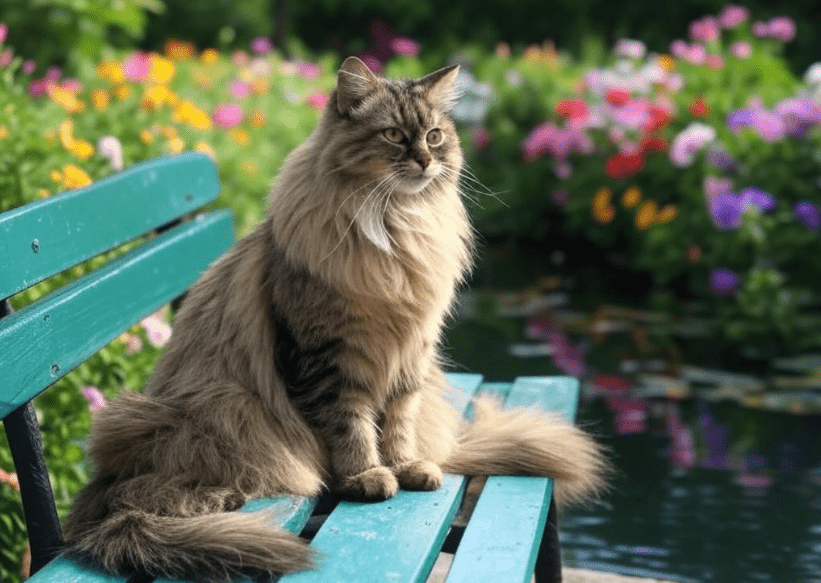
Kidney issues in Maine Coons are a serious but manageable concern with early detection and proactive care. By recognizing early signs—such as increased thirst, changes in urination, or lethargy—you can seek veterinary help before conditions like PKD or CKD progress. Regular checkups, a kidney-friendly diet, ample hydration, and a stress-free environment are key to supporting your Maine Coon’s kidney health. With vigilance and love, you can help your gentle giant live a long, healthy life, even in the face of kidney challenges. For any concerns, consult your veterinarian promptly to ensure the best outcome for your beloved cat.

